Early diagnosis of diseases possible with real-time measurements in femtomole units
- Writerkrissadmin
- Date2020-11-03 00:00
- Hits1115
Early diagnosis of diseases possible with real-time measurements in femtomole units
- KRISS develops ultra-sensitive real-time biosensing equipment through multidisciplinary research -
- Useful for early diagnosis of acute myocardial infarction, dementia, and various diseases -
The Nanobiosensor Team and Semiconductor Integrated Metrology Team of the Korea Research Institute of Standards and Science (KRISS, President Hyun-Min Park) developed equipment that provides real-time measurement in femtomole (a billionth of a millionth of a mole) units. It is expected to be useful in the early diagnosis of acute myocardial infarction, dementia, and various diseases.
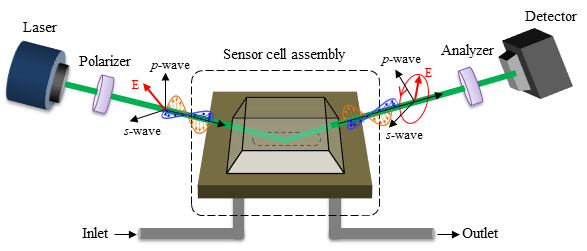
▲ Ultra-sensitive real-time biosensing equipment developed by KRISS
The new equipment, which is an improvement of 2016 technology, allows real-time measurement of specific biomarkers in serum without complicated processes. It offers a measurement sensitivity higher than 450 times that of existing equipment.
Acute myocardial infarction is the necrosis of heart muscles due to shortage of oxygen and nutrients resulting from coronary artery thrombosis. Early diagnosis is extremely important to provide prompt treatment within the golden time of two hours.
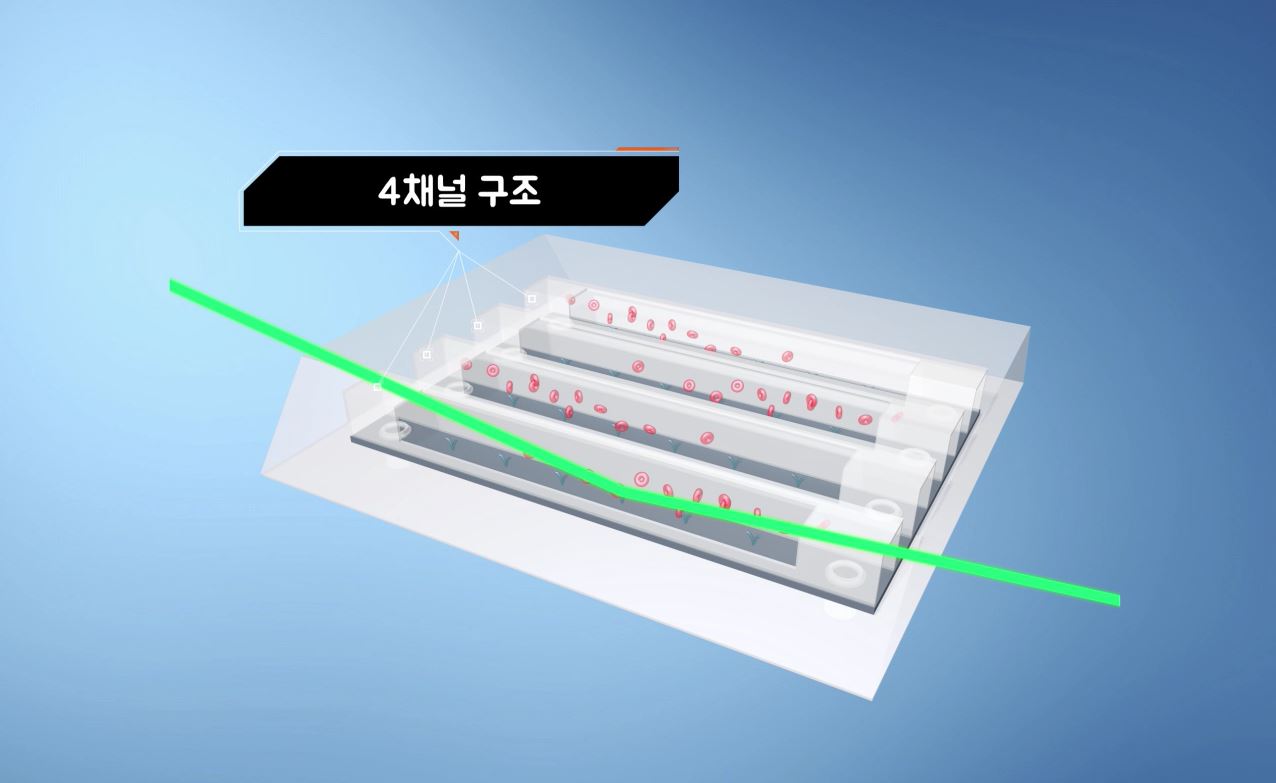
▲ An independent oval measuring device developed by KRISS
Diagnosis equipment should be able to rapidly detect troponins produced in the early stage of acute myocardial infarction. Troponins are difficult to observe as they exist in small traces of picomole units (one trillionth of a mole).
Troponins and other proteins or DNA that serve as indicators of biological states or conditions are called biomarkers. They are usually reacted with fluorescent substances or enzymes for easier detection, but the process of signal generation, amplification, and washing can be complex and time-consuming.
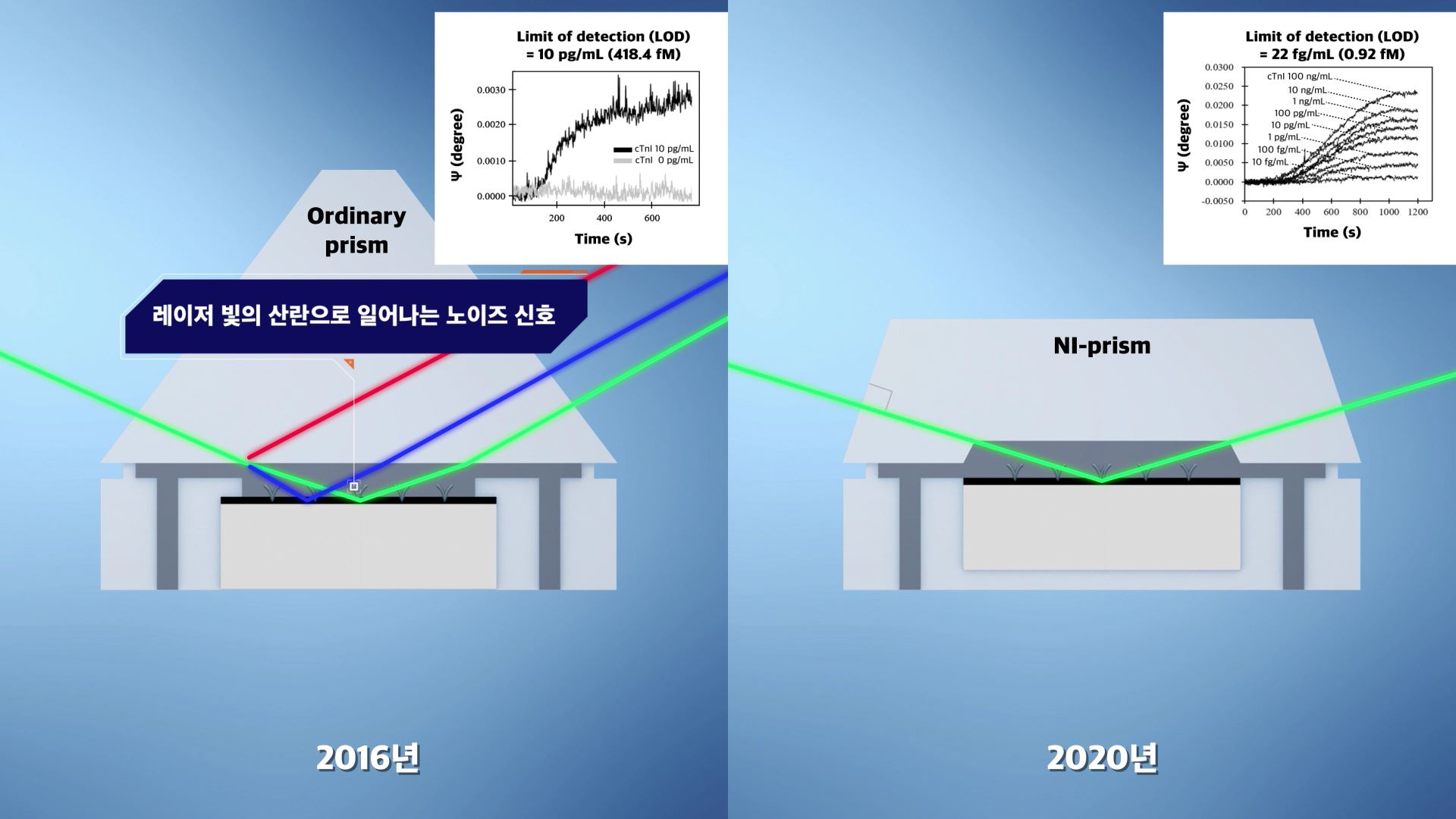
▲ Differences between equipments in 2016 (left) and 2020 (right)
The team amplified signals without requiring separate signal amplification or washing, thereby simplifying the process and improving efficiency. The equipment responds sensitively to changes in biomarkers based on light reflecting off the surface of silicon at various angles.
? The team developed an independent oval measuring device to minimize interference caused by light scattering. The device is not affected by solution type or changes in refractive index due to temperature. It provides precise measurements by focusing only on the change in thickness of the silicon sensor chip surface resulting from antigen-antibody reactions.
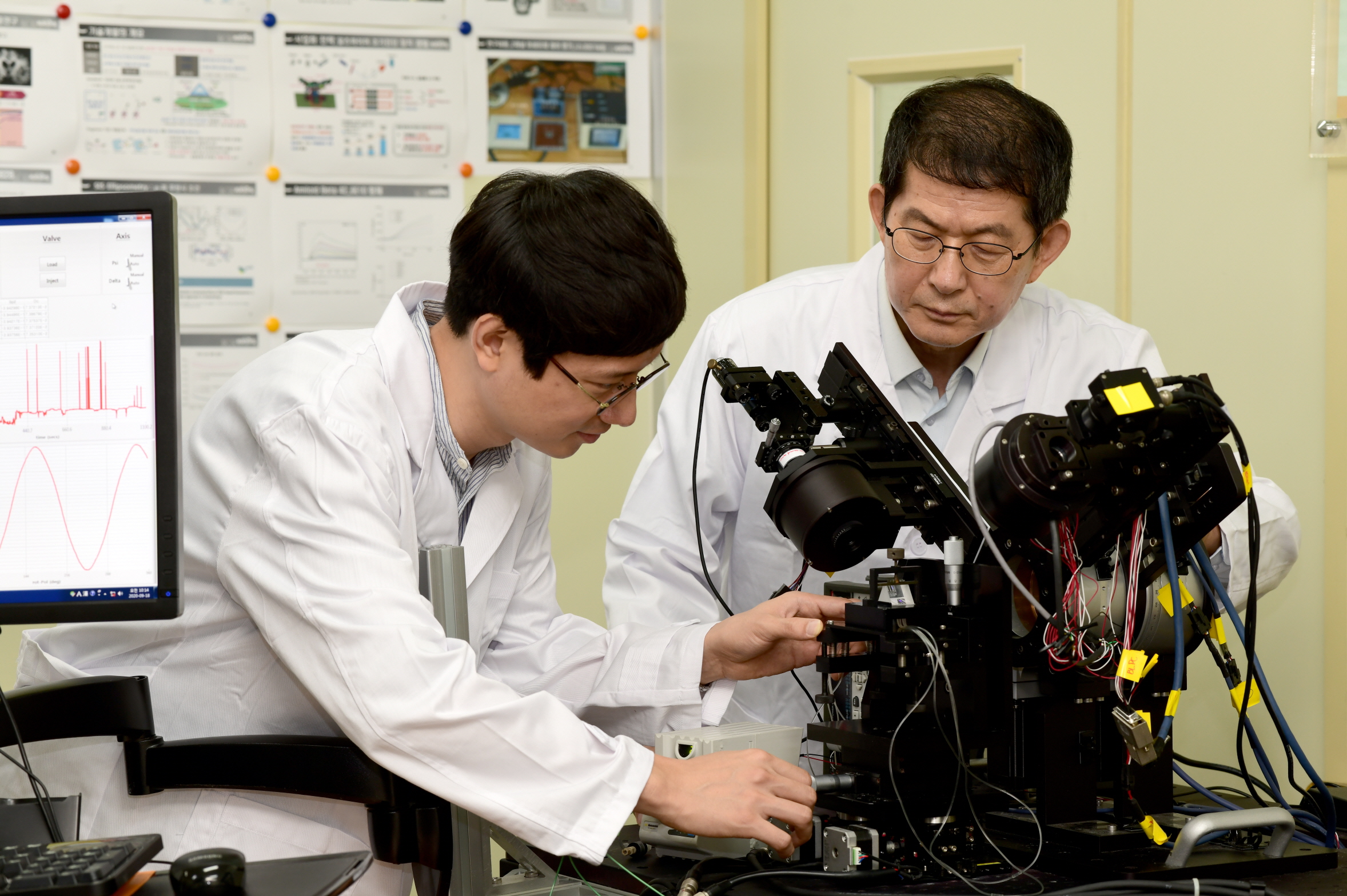
▲ KThe Nanobiosensor and Semiconductor team is experimenting using KRISS Ultra-sensitive real-time biosensing equipment
The proposed technique is also useful for the early diagnosis of dementia. Dementia is usually diagnosed through brain imaging or cerebrospinal fluid analysis. However, such methods involve high costs, and samples are difficult to obtain. With the newly developed equipment, early diagnosis may be possible by measuring femtomolar changes in concentration of amyloid beta and tau protein, which hare associated with dementia.
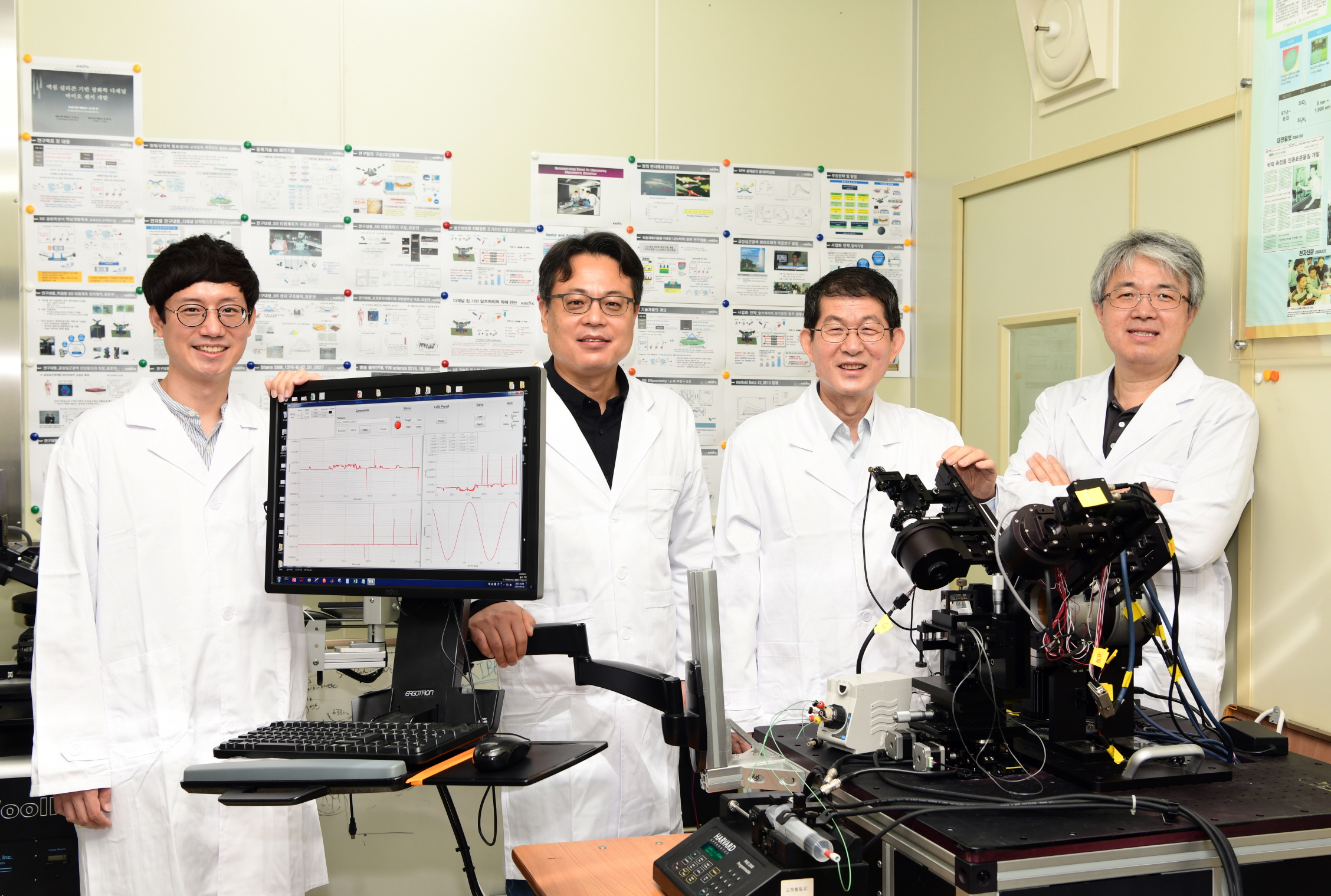
▲ The research team at KRISS
(From left, Senior researcher Dong-Hyung Kim, Principal researcher Won Che-Gal, Principal researcher Hyun-Mo Cho, Principal researcher Yong-Jai Cho)
Principal researcher Hyun Mo Cho said, “Dementia is usually in the advanced stage when symptoms are observed. Our technology allows early diagnosis of dementia by measuring changes in concentration of specific biomarkers in serum.”
The study was named among the top 100 national research and development achievements of 2020 by the Ministry of Science and ICT.

